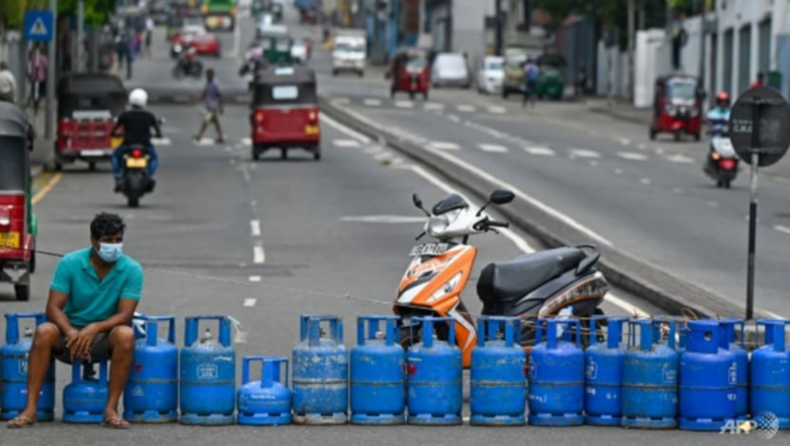Sri Lanka is facing a severe shortage of foreign exchange to finance even the most essential imports, including food, fuel, and medicines, and is appealing for international handouts.

Colombo seeks ‘urgent’ supply from India, Russia, Qatar
Cash-strapped In the midst of a fast deteriorating economic crisis, Sri Lanka halted gasoline sales nationally for nearly two weeks, with the exception of vital services.
Bandula Gunawardana, Cabinet spokesman and Minister of Transport, stated at a Monday evening news conference that private cars will be prohibited from purchasing petrol until July 10, after which the government has pledged to restore the regular supply.
Authorities suspended interprovincial bus service and recommended individuals work from home to conserve gasoline. Schools are also closed.
“Only the health, defense, electricity, and export sectors will receive fuel from today’s midnight till July 10,” Mr. Bandul Gunawardena told reporters.
Effective at midnight, the state-owned Ceylon Petroleum Corporation (CPC) would only provide diesel and gasoline for critical purposes, he added. These services include ports, airports, health, food delivery, and agriculture.
In recent weeks, as gasoline shortages grew, Sri Lanka’s highways seemed deserted, with more automobiles spotted sitting in lengthy lines outside gas stations than on the streets. Tuesday, the Sri Lankan capital city of Colombo was effectively shut down as government ministers rushed to Russia and Qatar to get emergency supplies.
Colombo turns to India
Sri Lanka’s High Commissioner to India, Milinda Moragoda, met with the Union Minister of Petroleum and Natural Gas, Hardeep Singh Puri on Monday in New Delhi to discuss the possibility of “securing petrol and diesel supplies that Sri Lanka requires urgently at this time,” according to the Sri Lankan mission in India.
“Minister Puri answered favorably and promised the High Commissioner that Sri Lanka will get all possible help at this critical time,” the statement stated.
Since January 2022, India has provided Sri Lanka with almost $4 billion in economic aid through loan deferments, currency swaps, and credit lines for necessary imports.
In a recent interview with The Hindu, Sri Lankan Prime Minister Ranil Wickremesinghe stated that Colombo hoped to acquire another $500 million credit line from India for petroleum imports.
Fears of food insecurity
As Sri Lanka awaits emergency supplies from any willing bilateral partner, the Minister of Power and Energy Kanchana Wijesekera said on Tuesday that the Cabinet has authorized opening the country’s petroleum import and retail sales sector to oil-producing nations.
“They will be picked based on their capacity to import fuel and function without foreign exchange restrictions from the CBSL [Central Bank of Sri Lanka] and banks for the first few months of operations,” he added in a tweet.
Farmers and fishermen have been adversely impacted by the severe diesel and kerosene shortages on the island country, which have halted output.
Already, the worsening economic collapse has spurred worries of famine and food insecurity. The United Nations issued a plea for $47 million in “life-saving help” for 1.7 million people earlier this month. “Prices have increased substantially since the end of 2021, prompting families to resort to missing meals, consuming less costly goods, or reducing portion sizes,” the United Nations reported.













